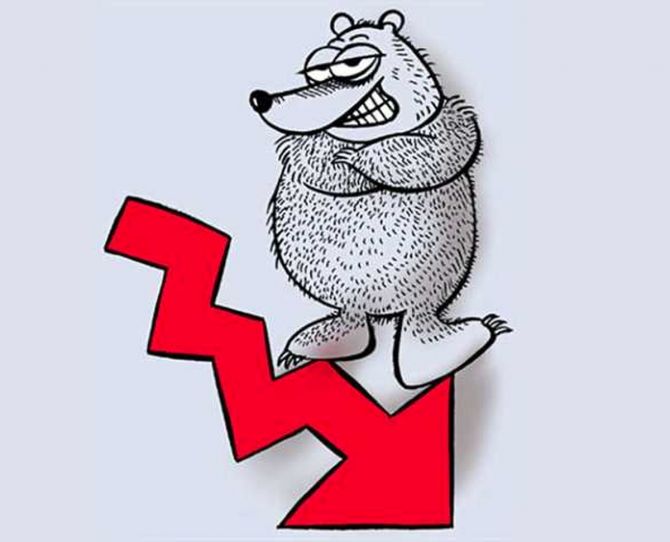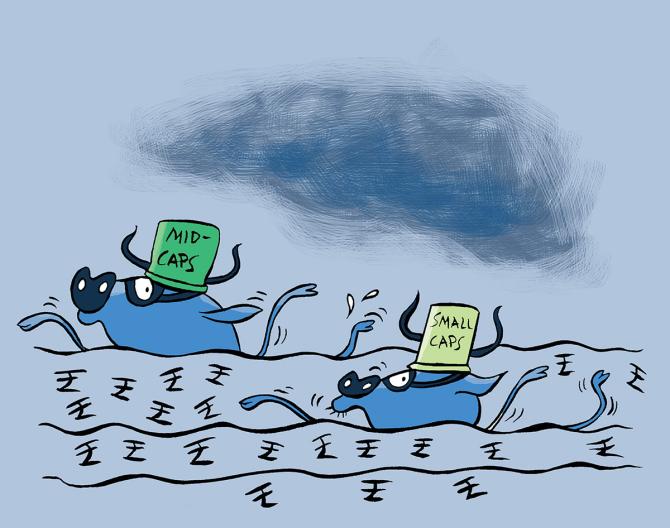'Valuations of midcaps and smallcaps have reached very high levels, and hence to that extent leave little margin of safety.'

"The next leg of the rally is likely to come from quality stocks that have underperformed in the last two years -- private banks, information technology, chemicals, and two-wheelers, and to some extent fast moving consumer goods," Shiv Sehgal, president and head of Nuvama Capital Markets, tells Puneet Wadhwa/Business Standard.
How do you see the markets play out in the next few months?
The next few months are likely to see increased volatility.
This is owing to moderation in earnings trajectory as tailwinds from input prices fade; uncertainty on rate cuts given that the US economy is still holding up strong; general elections in India and relatively stretched valuations.
What about the bond markets, especially in the backdrop of inclusion in a major global bond index?
The outlook for the bond market is a lot more upbeat given the low supply of bonds from both government as well as large corporates, easing core inflation and potentially headline inflation and the beginning of the rate cut cycle.
Also, if growth slackens, then there is likely to be a natural flight to bonds.
The stability in bond markets will certainly act as a downside support for equities as well.

How comfortable are you with the market valuations at the current levels?
This time around, aggregate market valuations are not very expensive -- 19x one-year forward price-to-earnings (PE), similar to the last five-year average. However, aggregates hide the skew.
Valuations of midcaps and smallcaps have reached very high levels, and hence to that extent leave little margin of safety.
Which sectors, in your opinion, can drive the next leg of the rally, or trigger a correction?
The next leg of the rally is likely to come from quality stocks that have underperformed in the last two years -- private banks, information technology, chemicals, and two-wheelers, and to some extent fast moving consumer goods.
What's your outlook for foreign flows to Indian equities playing out in the months ahead?
In 2023, India received around over 20 billion FII flow into equities -- one of the highest amongst emerging markets.
This is attributable to a better earnings environment in India, stronger corporate balance sheets and an improved domestic liquidity environment. In 2024, repeating the performance will be challenging.
Overweight and underweight sectors in the Indian context?
Going ahead, I would prefer global-oriented sectors as there seems to be a bottoming out of the destocking cycle.
Domestic cyclicals could be range-bound over the coming months after the dream run they had in 2023 and hence would be a little cautious in the near term here.

IMAGE: Shiv Sehgal.
Photograph: Kind courtesy Shiv Sehgal/Nuvama
Association of National Exchanges Members of India, reports suggest, is onboard with the NSE proposal of extending the derivatives trading hours. Is all the requisite infrastructure in place?
A lot of operational depth will need to be created at the brokers' and institutional investors' end.
Already some brokers are struggling to process the trades done by 3.30 pm and release systems in time for the next day.
More depth will need to be created for late-evening trading settlements.
The larger ecosystem still needs to evolve to have the right round-the-clock infrastructure for risks, operations and compliance for the extended trading hours to be successful and operational effectively.
To what extent is China a worry for the global financial markets?
China's slowdown is certainly a worry for global financial markets as it will keep global growth at weaker levels.
This will have repercussions on the tradable sectors in India as it will lower their profitability (owing to more competitive Chinese goods).
What's your interpretation of the developments in the US? Is the FOMC being too optimistic?
Yes, that's the right observation. US markets are indeed pricing in goldilocks of disinflation and large rate cuts.
This may not be easy to achieve as the tailwinds from the supply side, which engineered large disinflation in 2023, are now behind.
Hereon, disinflation will entail a larger growth sacrifice -- which is usually the case sans disruption seen during Covid.
Historically, the Fed has been a laggard in cutting rates -- but will this time be different? Who knows!
Feature Presentation: Rajesh Alva/Rediff.com












 © 2025
© 2025